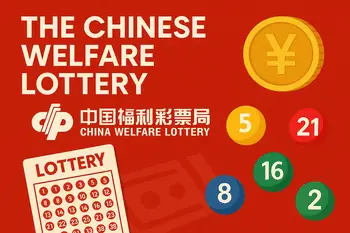
Moving to China is an exciting adventure, but understanding the cost of living is essential for a smooth transition.
Utilities and internet are key components of your monthly expenses, and knowing what to expect can help you budget effectively.
This guide provides a detailed breakdown of costs, regional and seasonal variations, and practical tips to manage your expenses.
Overview of Utility Costs
Utility costs in China vary depending on location, housing type, and personal usage.
Here’s a detailed breakdown of the main utility expenses:
- Electricity: Rates range from ¥0.55 to ¥0.75 per kWh. Monthly costs for a standard apartment typically range from ¥150 to ¥400, depending on usage. Air conditioning in summer can significantly increase costs, especially in southern cities like Guangzhou or Shenzhen.
- Water: Water is affordable, costing around ¥3 to ¥5 per cubic meter. Monthly bills usually range from ¥20 to ¥60, depending on consumption.
- Gas: Gas, used for cooking and heating, costs about ¥3 to ¥4 per cubic meter. Monthly bills range from ¥50 to ¥150, with higher costs in winter for heating.
- Heating: In northern China, central heating is often included in property management fees. If paid separately, costs can range from ¥1,000 to ¥2,000 for the winter season. Southern cities typically rely on electric heaters, which can increase electricity bills.
- Waste Management: Waste management fees are usually included in property management fees, which cost ¥1 to ¥4 per square meter of your apartment per month.
Internet Costs
Reliable internet is essential for expats, whether for work, staying connected with family, or entertainment.
Here’s what you can expect:
- Broadband Internet: Prices range from ¥100 to ¥200 per month for a 100 Mbps connection. Popular providers include China Telecom, China Unicom, and China Mobile.
- Fiber Optic Internet: For higher speeds, fiber optic internet costs between ¥150 and ¥300 per month for a 200 Mbps connection, available in major cities.
- Mobile Data: Monthly plans range from ¥50 to ¥150, depending on data limits and provider. Prepaid and postpaid options are available, with providers like China Mobile and China Unicom offering competitive packages.
Installation Fees
Internet installation fees can range from ¥100 to ¥300, depending on the provider and location.
Some landlords may include internet in the rent, so it’s worth negotiating this when signing a lease.
Regional and Seasonal Variations
Utility and internet costs can vary significantly based on location and season:
- Regional Differences: Major cities like Beijing, Shanghai, and Shenzhen tend to have higher utility and internet costs compared to smaller cities or rural areas. For example:
- Electricity: ¥0.75 per kWh in Shanghai vs. ¥0.55 in smaller cities.
- Internet: ¥200 per month in Beijing for fiber optic vs. ¥150 in less urbanized areas.
- Seasonal Variations: In northern China, heating costs are a major expense in winter, while in southern cities, electricity bills spike in summer due to air conditioning.
Factors That Affect Costs
Several factors influence your utility and internet expenses:
- Housing Type: Modern apartments with amenities like central heating or smart home systems may have higher utility costs than older buildings.
- Usage Habits: Frequent use of air conditioning, heating, or high-speed internet will increase your bills.
- Shared Housing: If you live in a shared apartment, utility costs are typically split among tenants, reducing individual expenses.
Tips to Manage Costs
Managing utility and internet costs effectively can help you stay within budget.
Here are some practical tips:
- Compare Providers: Research and compare utility and internet providers in your area to find the best deals. Apps like Alipay and WeChat often list available services.
- Negotiate with Landlords: Ask if utilities or internet can be included in your rent to simplify payments.
- Adopt Energy-Saving Practices:
- Use LED bulbs and energy-efficient appliances.
- Unplug devices when not in use.
- Optimize heating and cooling systems.
- Monitor Usage: Use apps or online tools to track your utility consumption and adjust habits to save money.
- Bundle Services: Look for providers that offer bundled packages for internet, TV, and phone services at discounted rates.
- Pay Bills Online: Use apps like Alipay or WeChat to pay utility bills conveniently and avoid late fees.
Hidden Fees to Watch Out For
When budgeting for utilities and internet, be aware of potential hidden fees:
- Property Management Fees: These are often charged monthly and can range from ¥1 to ¥4 per square meter of your apartment.
- Deposits: Some utility providers require deposits when setting up services.
- Late Payment Penalties: Missing payment deadlines can result in additional charges.
Overcoming Language Barriers
Setting up utilities and internet often involves dealing with Chinese-speaking service providers.
Here are some tips to overcome language barriers:
- Use translation apps like Google Translate or Pleco.
- Ask a local friend or colleague for assistance.
- Look for expat-friendly landlords or housing agencies that can help with setup.
Conclusion
Understanding utilities and internet costs is crucial for expats living in China.
By considering regional and seasonal variations, comparing providers, and adopting cost-saving strategies, you can manage your expenses effectively and enjoy a smooth transition to your new home.
Whether you’re in a bustling city like Shanghai or a quieter town, planning ahead will help you stay financially stable and focus on enjoying your experience in China.


